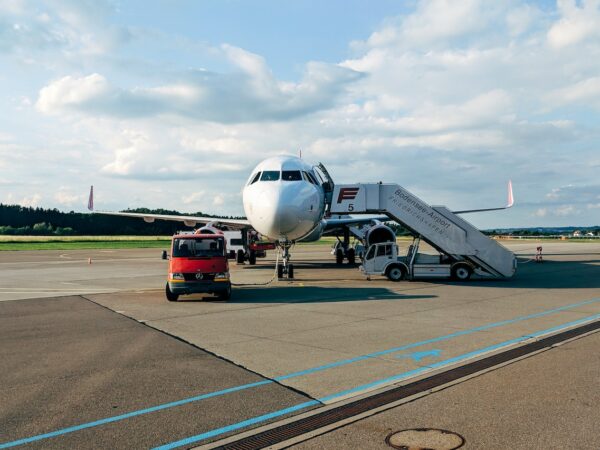The charter airline industry has always been a turbulent one but that hasn’t stopped many from getting into it. The early 90s were a time of great change as older companies like Dan Air and Air Europe disappeared and new ones started up. Excalibur was one of the new breed using ultra-modern equipment and offering a great service, at least until an ill-thought out change of direction led to their downfall.
The economic turbulence that went with the First Gulf War at the dawn of the 90s caused many troubles for the British charter airline scene. It led to the collapse of the parent company of Air Europe (and thus the airline itself) in March 1991, contributed to the decline and sale of Dan Air in 1992 and also saw to the Trans European (TEA) group of airlines in September 1991. Nonetheless, as brands exited the market there was no shortage of new entrants to take their place. 1991/92 saw the addition of Airtours, Ambassador, Flying Colours and Excalibur to the roster while other young charter companies like Air 2000 and Air UK Leisure grew strongly.
Excalibur was actually formed from the ashes of TEA UK (the British branch of the TEA family). TEA UK had been Birmingham based but using its remains Excalibur would be based at East-Midlands Airport, although the majority of its services flew from elsewhere. Ownership of the new airline was split between Air Malta (30%), ex-TEA UK management (40%) and a UK Capital investmet group 3i (30%).
The airline’s first equipment was to be a trio of brand new Airbus A320s leased from GPA Airbus. At the time the A320 was just finding its feet and these aircraft would be the first in the UK to be used by a charter airline. Technically British Airways had used the type on charter flights before flying an old BCal contract in 1988 using G-BUSB and G-BUSC on late night charters but Excalibur was the first to use them full time this way.
Incidentally it is worth remembering that the A320 became very popular with UK charter airlines later in the 90s being operated by almost everyone from Air 2000 to Monarch, Inter European, Flying Colours, Airtours, Airworld, Caledonian, All Leisure and Leisure International. This was of course years before the low-cost revolution and the appearance of EasyJet A320s in the early 2000s.
The aircraft sub-leased was the DC-10 V2-LEH operated by Skyjet Antigua. It was an ex-Alitalia and Aeromexico frame but proved to be disastrously unreliable. The first major incident was in early June when 91 passengers refused to reboard the aircraft when smoke filled the cabin. Two weeks later it was due to operate a Manchester to Orlando service but suffered a catalogue of problems, which resulted in an aborted take-off. Once again the passengers, 350 this time, refused to reboard the aircraft.
Excalibur was forced to charter a Laker DC-10 but the 700 passengers in Manchester and on the return flight from Orlando were delayed by 25 hours. Excalibur was pilloried for all these incidents in the British press. The day after these events Excalibur was forced to declare bankruptcy as tour operators withdrew their contracts.
The collapse of Excalibur was shockingly swift but not untypical of the struggles faced between seasons for charter airlines. Ultimately the change to long-haul operations was handled poorly but it would appear this change was necessitated by the changing structure of the IT industry in general.
